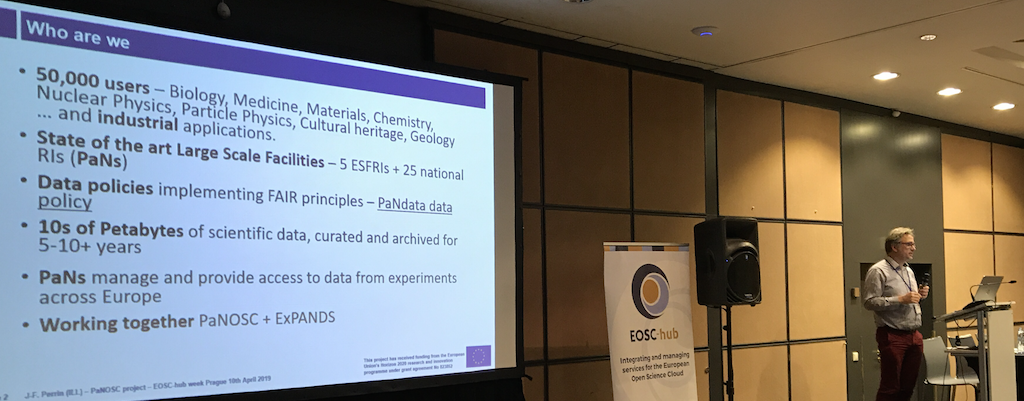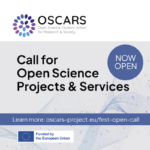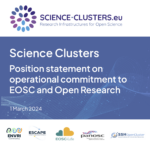PaN facilities challenges and opportunities showcased at the EOSC-hub Week 2019

The EOSC-hub Week 2019 took place on 10-12 April in Prague – Czech Republic, bringing together both present and future service providers and users of the European Open Science Cloud (EOSC).
The event came just after the recent launch of the EOSC in November 2018, which saw EOSC-hub’s Catalogue of Services incorporated into the new EOSC. With the EOSC now live and in its early stages, the challenge now is to enrich EOSC’s service offering to cover all the gaps in research services and increase uptake by the research community.
PaNOSC has the goal to address specifically the needs of the users of European Photon and Neutron facilities in this realm. The project’s contribution to the discussion came with Jean-François Perrin from Institut Laue-Langevin – ILL, who presented the challenges that PaN facilities have been tackling and will address through the project, as well as the opportunities that will be provided to the PaN users community throughout the whole implementation phase.

In particular, PaNOSC will contribute to the EOSC by providing:
- Curated Open Data and metadata of the highest quality
- Reliable services dedicated to understanding and further exploiting scientific open data
- Technical and scientific support on data and data services
- Experience on FAIR data policies and FAIR implementation guidelines for Photon and Neutron science
- Knowledge and understanding of the PaN scientific community
- Ability to promote FAIR culture amongst the PaN community
(Download the presentation by J-F. Perrin here)
During the event, an open call for users and service providers was launched. Stronger involvement from the ESFRI communities, the HPC Centers of Excellence and the public sector was stimulated through three interactive sessions dedicated to discuss how EOSC can make a difference for these different target groups. Industry also played a relevant role through the Industry and EOSC session featuring the joint presence of the EOSC-hub Digital Innovation Hub and OCRE (Open Cloud for Research Environments project).
The latest developments across the EOSC-sphere were also discussed and analysed within several sessions dedicated to various thematic areas such as Earth Observation, Life Sciences, Physics and Astrosciences, and Humanities and Social Sciences.


